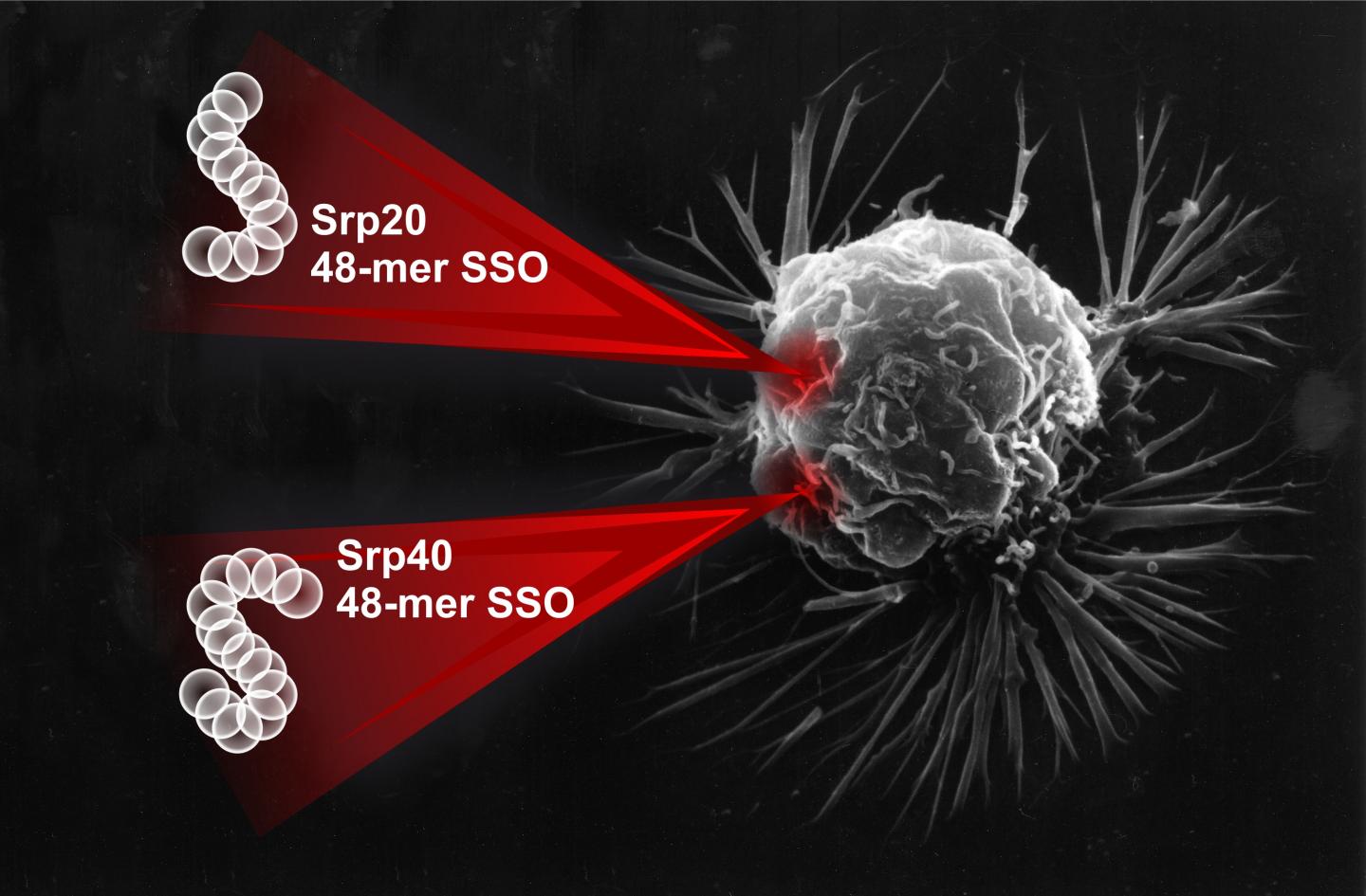RUDN biochemists found a way to reduce the activity of telomerase (the enzyme of cell immortality) 10 times

Credit: Natalia Deryugina
RUDN biochemists found a way to reduce the activity of telomerase (the enzyme of cell immortality) 10 times. The discovery will help create new antitumor drugs and give a better understanding of how the activity of the enzyme can be controlled. The results of the study were published in the Biochemical and Biophysical Research Communications journal.
The ends of chromosomes are covered with a kind of safety caps – telomeres. These are compact DNA sequences that stabilize chromatin structure. With each cell division telomeres become shorter, and the older a cell, the shorter are the telomeres of its chromosomes. However, certain types of cells (e.g. germ cells, stem cells, and lymphocytes) have an active immortality enzyme called telomerase. It compensates for the shortening of telomeres and allows the cells to divide practically endlessly. The highest telomerase activity is observed in cancer cells – this is one of the factors that makes them malignant. RUDN biochemists demonstrated that the activity of telomerase may be reduced using specific oligonucleotides (short DNA fragments).
“We wanted to find out whether the oligonucleotides in charge of splicing shift (splicing is the process of cutting and reattaching of mRNA segments) are able to slow down the activity of telomerase. We studied it on the example of human T-lymphocytes. As a result, we managed to find an oligonucleotide able to actively suppress telomerase and slow down cell proliferation without killing the cells,” said Dmitry Zhdanov, a co-author of the work, a candidate of biology, and assistant professor of Academician Beryozov Department of Biochemistry at RUDN.
The main way of influencing the activity of telomerase is associated with the inducing of alternative splicing of its mRNA. As a result of this process several non-active protein forms are synthesized in a cell. RUDN biochemists affected the alternative splicing using three types of oligonucleotides specific for different regulatory areas of telomerase mRNA. They were injected into human T-lymphocyte cells, and the activity of telomerase was measured after one day. It turned out that individual oligonucleotides did not influence the enzyme considerably, but the combination had a profound effect: the activity of telomerase reduced to 50% within the first 24 hours, to 18% – within the second, and to 10% – within the third.
According to the biochemists, oligonucleotides may serve as a basis for new drugs for anti-proliferative therapy that us used to treat benign and malignant tumors and other conditions associated with excessive cell division.
The participants of the study also represented Orekhovich Research and Science Institute of Biomedical Chemistry and Blokhin National Medical Research Center of Oncology (Russia).
###
Media Contact
Valeriya V. Antonova
[email protected]
Related Journal Article
http://dx.




